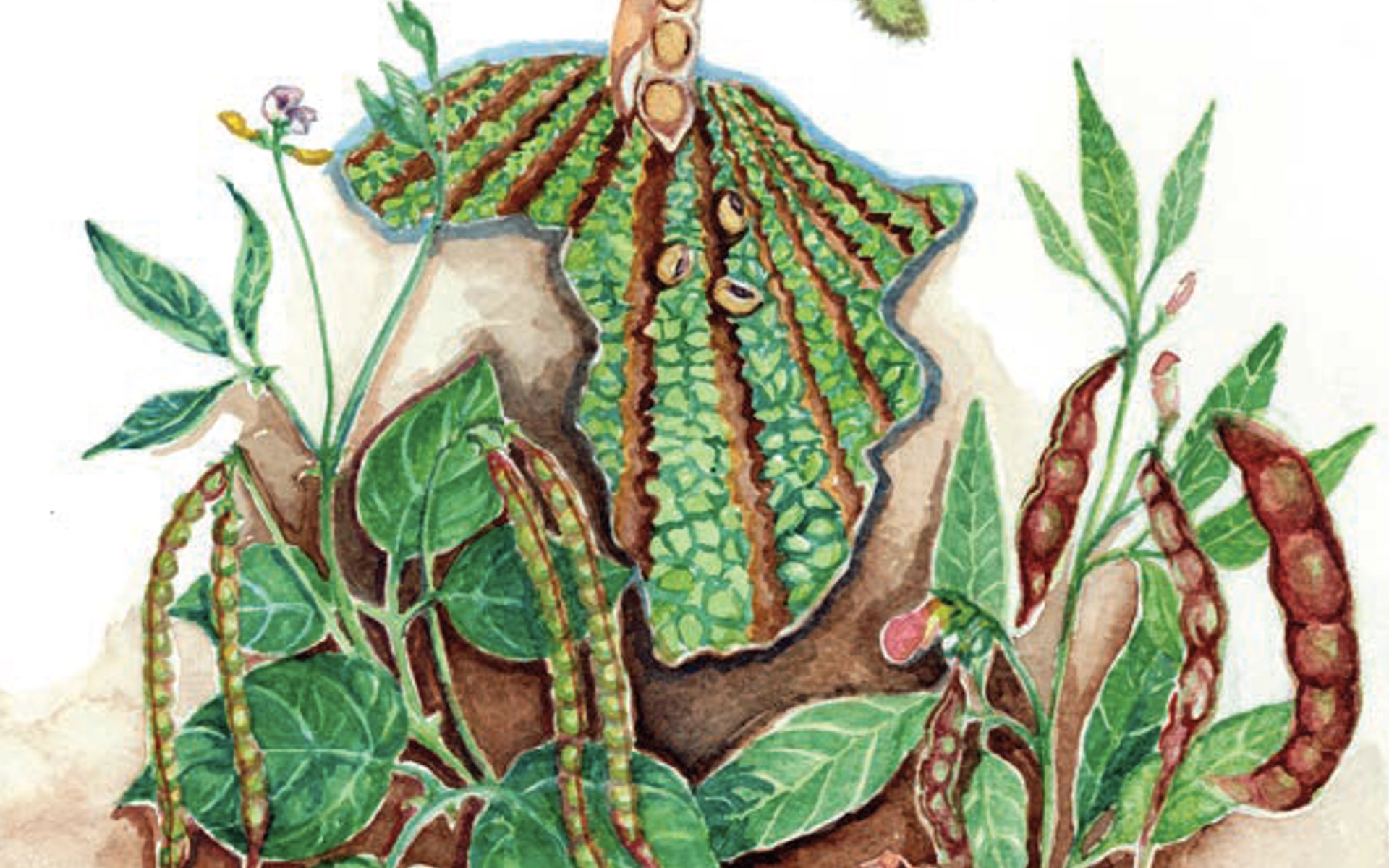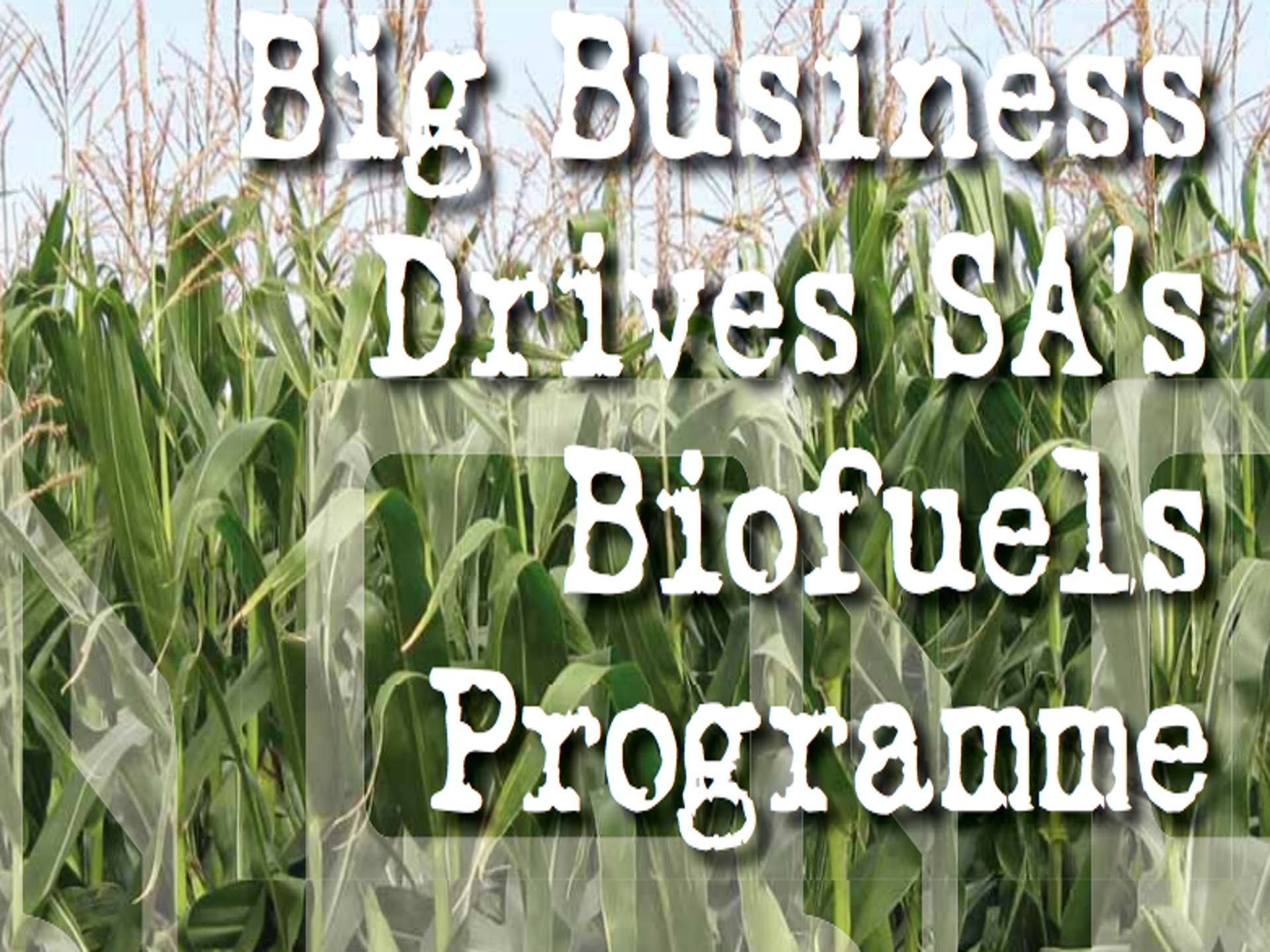Latest Agribusiness Resources
3 March 2025
On-going assaults on our food system and peoples’ health
Legal loopholes to allow continued use of highly hazardous pesticides, GM crops On the 27th of February, the ACB submitted substantive objections to the South African government’s attempt to backtrack on its commitments to phase out highly hazardous pesticides (HHPs), including glufosinate ammonium (GLA), by way of spurious and potentially unlawful “derogation” regulations. The rise […]
READ6 August 2021
Africa responds to the UNFSS
Let’s reclaim our food sovereignty and transform the industrial food system! African organisations participating in the global response to the UN Food Systems Summit (UNFSS), including the African Centre for Biodiversity (ACB), coordinated an online session, as part of the three days of global counter-mobilisation, which took place during the UNFSS pre-summit, from 25 to […]
READ16 January 2019
Africa Group captured by colonial medicine, agribusiness and US military interests on gene drives at UN Biodiversity Conference
On the pretext of supporting scientific innovation for malaria eradication, African countries vociferously defended a techno-fix that does not address the wider determinants of malaria – but rather, represents the changing face of colonial medicine and threatens the biodiversity of an entire continent. At the UN’s recent Convention on Biological Diversity (CBD), a proposal to […]
READ14 June 2018
Restrict, regulate and reduce corporate power in South Africa’s food system
I attended a dialogue on corporate ownership in South Africa in May, in Tshwane, hosted by Trade and Industrial Policy Strategies (TIPS). There was strong government representation at the dialogue, including from Treasury; Trade and Industry; Minerals and Energy; and Planning, Monitoring and Evaluation. Someone from the EU was also there. Corporate concentration is a […]
READ6 June 2018
Bayer opposes black economic empowerment in purchase of Monsanto
The Competition Tribunal announced the finalisation of the merger between Bayer and Monsanto in South Africa in May. Bayer had taken the original conditions imposed by the Competition Commission in 2017 to the Tribunal for reassessment. These included selling businesses to black economic empowerment (BEE) compliant companies. Bayer has claimed confidentiality on the conditions, making […]
READ19 September 2017
Erosion of farmers’ seed and agricultural systems in Tanzania
There are no simple answers when it comes to predicting the future of African food systems. Across the continent, the push to commercialise African agriculture to feed the growing and urbanising population, increase incomes, and reduce poverty is well known. However, this ‘solution’ is also heavily criticised for its ineffective, inappropriate and misdirected approach for […]
READ15 June 2017
The GM maize onslaught in Mozambique: Undermining biosafety and smallholder farmers
A new report from the ACB, “The GM maize onslaught in Mozambique: Undermining biosafety and smallholder farmers” written in conjunction with Acção Academicapara o Desenvolvimento das Comunidades Rurais (ADECRU) has been released today. It provides an analysis of the changes made to Mozambique’s biosafety legislation in order to allow for field trials of genetically modified […]
READ13 February 2017
Bayer-Monsanto merger: An existential threat to South Africa’s food system
In December 2016 Monsanto shareholders voted in favour of the sale of the company to Bayer for US$66 billion, making it the largest-ever foreign corporate takeover by a German company. Both Bayer and Monsanto are major global manufacturers of agrochemicals and seeds, including genetically modified seed. A merged entity would be the world’s largest supplier […]
READ29 August 2016
N2 Africa, the Gates Foundation and Legume commercialisation in Africa
This report considers the N2Africa programme, which aims to develop and distribute improved, certified legume varieties (soya, common bean, groundnut and cow pea); promote and distribute inoculants and synthetic fertiliser; and develop commercial legume markets for smallholder integration in 13 countries in sub-Saharan Africa: Tanzania, Uganda, Ethiopia, Nigeria, Ghana (core countries); Kenya, Rwanda, Democratic Republic […]
READ2 September 2014
Africa an El Dorado for South Africa’s Agribusiness Giants
South African agribusinesses are aggressively expanding into Africa in search of profits from a relatively untapped consumer market with rising income levels and to escape the country’s negative economic conditions. This paper traces this expansion and outlines the implications for Africa’s market structure, food security and food sovereignty movements, as well as exploring the potential […]
READ18 November 2013
Giving With One Hand and Taking With Two: A Critique of AGRA’s African Agriculture Status Report 2013
The African Centre for Biosafety (ACB) has released a comprehensive critique of a report published by the African Alliance for a Green Revolution in Africa (AGRA). The analysis of AGRA’s African Agriculture Status Report 2013 reveals that AGRA’s vision is premised on Public-Private Partnerships in which African governments will shoulder the cost and burden of […]
READ15 May 2012
Big Business Drives SA’s Biofuels Programme
In late February 2012 leading figures from the fossil fuel industry met in Pretoria to forge ahead with the government’s highly controversial plans for an SA biofuels industry. The catalyst for this meeting was the publication by the government last September of draft regulations for the mandatory blending of biofuels in the nation’s fuel supply. […]
READ











